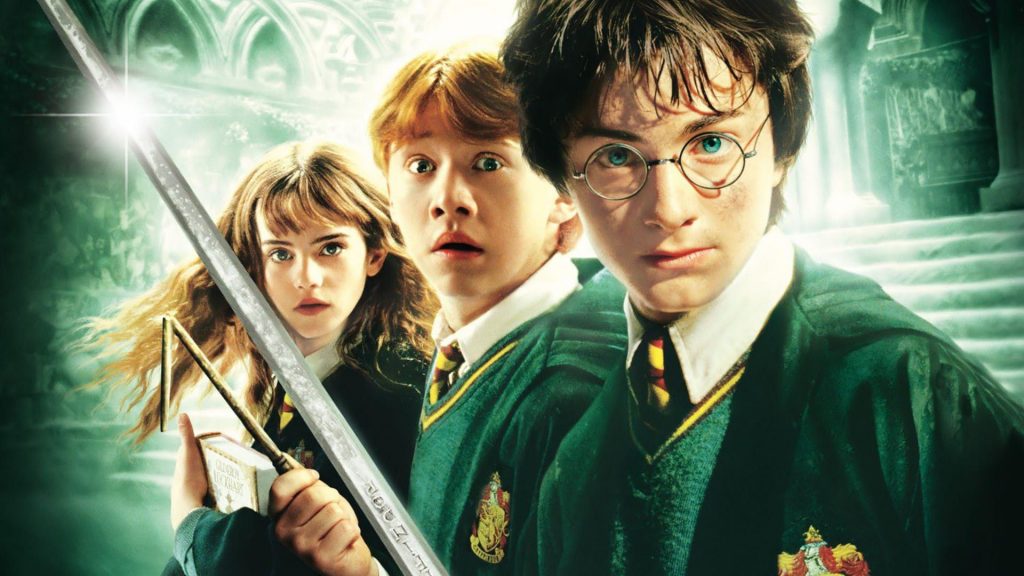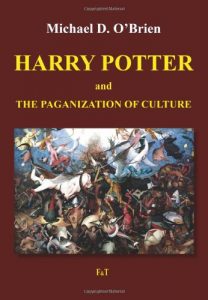 As all regular readers of this blog know, we receive many questions about children's books in which the characters use sorcery in one way or another. In an effort to help Christian parents and educators learn how to discern whether or not this content is suitable for children, I would like to post insights from Michael O'Brien's book, Harry Potter and the Paganization of Culture and other useful sources which I hope they will find useful.
As all regular readers of this blog know, we receive many questions about children's books in which the characters use sorcery in one way or another. In an effort to help Christian parents and educators learn how to discern whether or not this content is suitable for children, I would like to post insights from Michael O'Brien's book, Harry Potter and the Paganization of Culture and other useful sources which I hope they will find useful.In a chapter on Christian fantasy writing, O'Brien compares the magic found in occult fiction such as Harry Potter to that which appears in Christian classics such as J.R.R. Tolkien's Lord of the Rings and C. S. Lewis' Chronicles of Narnia.
Essentially, the problem is not so much that magic is present in the book, but how the magic is presented. The Potter books use magic in a way that turns the moral order on its head with grave distortions of good and evil. For instance, so-called "black" and "white" magic (a distinction that does not exist) is used by both good and bad characters in the book. This makes magic morally neutral, taking it out of the moral realm and making it into a kind of tool.
"If magic is presented as a good, or as morally neutral, is there not an increased likelihood that when a young person encounters opportunities to explore the world of real magic he will be less able to resist its attractions?" O'Brien asks.
Occult fiction often includes other distortions that can have a negative effect on a child's moral outlook. For instance, in the Potter books adults are presented as mean and those who don't practice magic to be backward. The books can also be overtly anti-Christian, such as the trilogy, His Dark Materials by Philip Pullman, in which God is openly maligned.
 Contrast this with Christian fantasy, such as The Chronicles of Narnia and the Lord of the Rings, which are also loaded with magic. What's the difference?
Contrast this with Christian fantasy, such as The Chronicles of Narnia and the Lord of the Rings, which are also loaded with magic. What's the difference?
The difference is that these writers portray magic in the proper context and without upturning the moral order.
As O'Brien explains, throughout Lewis' fiction, witches are portrayed in classic terms, as malevolent, manipulative and deceiving. An example would be the witch in The Silver Chair who mesmerizes the children to convince them that there is no sun. But one character, the Marsh-wiggle, deliberately burns himself in the fireplace to shock his mind back to reality. When he snaps out of it, he confronts the witch who then reveals her true nature by turning into a serpent, thus alerting the children to their peril.
In The Lion, the Witch and the Wardrobe, the four Pevensie children discover a wardrobe that leads them into the land of Narnia. One of the children is then tricked by a witch posing as a beautiful queen who tempts him with treats and promises of power if he will turn on his siblings. He does so, but when he later learns the true nature of the witch, he regrets his action and repents. But he cannot be free of the dominion of the wicked witch until he pays his debt, something that Aslan, the Christ-figure presented in the form of a lion, agrees to do. Aslan sacrifices his own life in exchange for the children, but then miraculously returns to life and liberates Narnia, crowning the children kings and queens of Narnia.
"This is salvation history, distilled in the form of Story," O'Brien writes.
The same holds true with Tolkien, where magic is also portrayed as fraught with deception. As O'Brien explains, the character named Gandalf, who is often referred to as a wizard, is not a classical sorcerer. Rather "Gandalf's task is to advise, instruct and arouse to resistance the minds and hearts of those threatened by Sauron, the Dark Lord of this saga. Gandalf does not do the work for them; they must use their natural gifts to resist evil and do good - and in this we see an image of grace building on nature, never overwhelming nature or replacing it."
Instead, Gandalf's gifts are used sparingly, and then only to help others in the exercise of their free will and moral choices. "It is only an assist, never a replacement."
The proper moral order is also reflected in the way Frodo realizes that the ring he has been entrusted with has great powers and he is constantly tempted to use them for the good. "But he learns that to use its powers for such short-range 'goods' increases the probability of long-range disaster, both for himself and for the world."
 Tolkien makes it clear that "such powers are very much a domain infested by the 'deceits of the enemy' used for domination of other creatures' free will. They are metaphors of sin and spiritual bondage."
Tolkien makes it clear that "such powers are very much a domain infested by the 'deceits of the enemy' used for domination of other creatures' free will. They are metaphors of sin and spiritual bondage."
Compare this to Potter-type literature.
"In neo-pagan fantasy literature, magic in the hands of both 'good' and 'bad' characters is frequently used to overwhelm, deceive and defile," O'Brien writes. "In the Potter series, Harry uses his powers to overwhelm, deceive and defile his human enemies, and he resists Voldemort with the very powers the Dark Lord himself uses."
In this article, Catholic Answers apologist Steven Greydanus outlines seven other very distinct differences between the use of magic in Christian fantasy and that used in books such as Harry Potter. For example, Tolkien and Lewis relegate the pursuit of magic to wholly imaginary realms whereas books such as Potter feature a hero who lives in a modern-day England that readers can relate to. The magic being used in Christian fantasy is known to all inhabits of these imaginary realms whereas in Potter, the magic is known only to a magical elite, making it all the more attractive and intriguing to young readers. Tolkien and Lewis include cautionary threads in which they emphasize the danger of the corrupting influence of magic on its users. Books such as Potter glorify the magic and include no such warnings. In fact, in Potter, those who resist its use are pictured as backward.
Any parent or educator interested in researching a particular book (movie, TV, or game) will find good Christian reviews at Focus on the Family's Plugged In website.
Hopefully, the above information will help parents and educators learn to discern the good, the bad and the ugly in modern reading material.
© All Rights Reserved, Living His Life Abundantly®/Women of Grace® http://www.womenofgrace.com
Women of Grace® has compiled a library of over 1400 articles on New Age and occult related material and has been offering them to the public for more than a decade – at no charge! If you appreciate our research, please prayerfully consider making a donation to support this vital work! Click here to donate!
